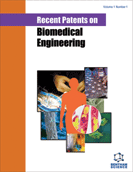Abstract
Recent progress in medical management has significantly improved the range of treatments for children with severe heart failure; however, some patients still suffer from refractory heart failure, necessitating heart transplantation. Transplantation is the definitive therapy for end-stage heart failure in children and adults; however, many patients die before transplantation because of the shortage of donor organs. Mechanical circulatory support devices have offered new treatment options for these patients. For many years, extracorporeal membrane oxygenation (ECMO) has served as the main circulatory assist device for children. However, long-term support with ECMO is not recommended because of the accompanying severe complications, such as cerebral infarction, brain hemorrhage, and renal and multiorgan failure. The development of ventricular assist devices specifically for children is lagging behind efforts aimed at treating adults. Furthermore, a total artificial heart is not thought suitable for children because of their growth rate. The National Heart, Lung, and Blood Institute has supported efforts to develop pediatric-specific devices at five institutions in the United States since 2004. There are only a few patents for circulatory support devices designed for pediatric patients, and there is still much room to improve currently available pediatric circulatory devices.
Keywords: Pediatric patients, circulatory support, ventricular assist device, congestive heart failure
 2
2

